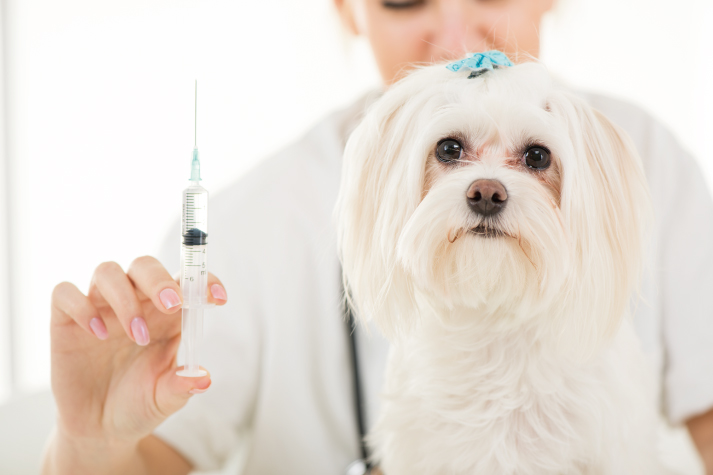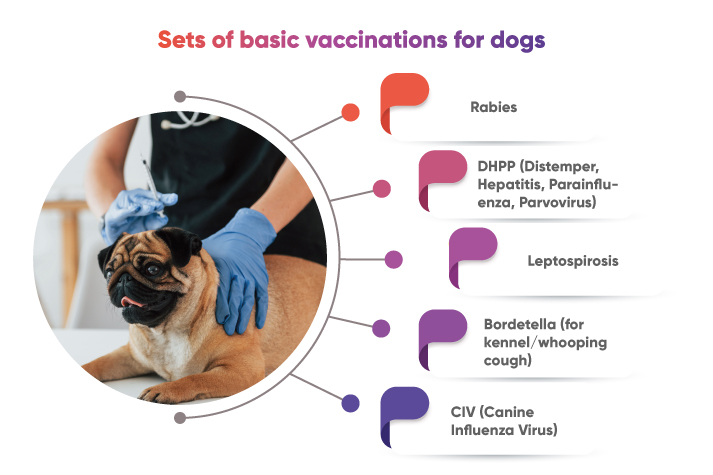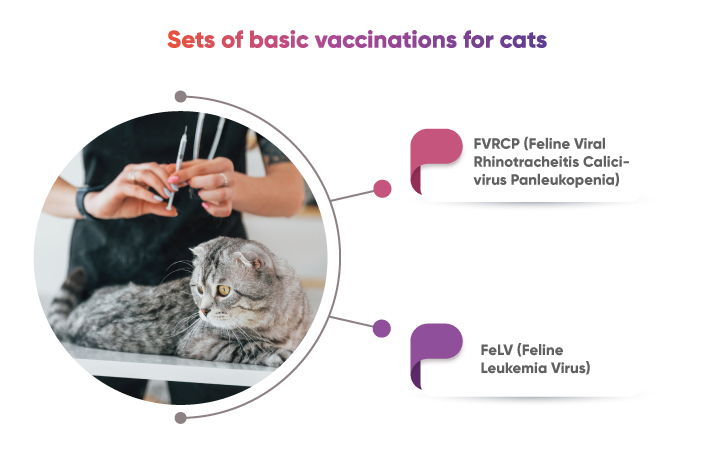
17 Mar
What Vaccinations Does My Pet Need Before an International Move?
Planning for an international pet relocation can be an exhausting process. The health and safety requirements to fulfil are complex and have no room for error. The documentation must be in order, with each country having its own rules pertaining to pet import & export. The process can be frustrating, as even if the rules for export are not cumbersome, the airline’s own set of rules combined with a country’s import guidelines can be daunting. It is crucial to your move that you understand and comply with all the rules of an import, to make sure your pet’s travel is smooth and free of obstacles.
While the process can feel inundating, the rules are in place for a reason. Your pet’s health is important, as no country will permit an ill pet to enter, given the risk they run of introducing diseases or parasites to their ecosystems. For this reason, your pet’s vaccination record is of great importance, as it is the only accepted proof of protection your pet has.
What Vaccinations are Mandatory?
One of the first and universally required vaccinations a destination requires from a traveler is a rabies vaccination. As a highly infectious viral disease, no country will take the risk of introducing a positive rabies animal from overseas, especially if their ecosystem is still recovering from destruction caused by importing infectious livestock.
A vast number of destinations require your pet to be vaccinated against rabies at least 30 days but no more than one year before travel. The accepted vaccination validity varies from country to country. For instance, while your country of origin may accept and provide 3-year rabies vaccinations, your destination may require the rabies vaccine to be administered within the last year, meaning you’ll need a booster before you can travel. You’ll also need to have a signed rabies certificate while you travel, or the results of a rabies titer test (RNAT) if required.
Each country has its own set of import/export regulations, and you may require further vaccinations. This is especially true if your pet needs to be quarantined or if they will be staying at a pet boarding facility. While a rabies vaccination is among the primary immunizations required, there are a set of basic vaccinations you should ensure your pet receives before your travels.
Here are the different sets of basic vaccinations for dogs and cats:

For Dogs:
- Rabies
- DHPP (Distemper, Hepatitis, Parainfluenza, Parvovirus)
- Leptospirosis
- Bordetella (for
- kennel/whooping cough)
CIV (Canine Influenza Virus)

For Cats:
- FVRCP (Feline Viral Rhinotracheitis Calicivirus Panleukopenia)
- FeLV (Feline Leukemia Virus)
While getting your pet vaccinated, make sure to specify the manufacturer of the vaccine as well as the prescribed guidelines, as some countries are particular about the vaccination, the manufacturer, the administration process, and so on. If you’re re-vaccinating your pet, make sure to follow the manufacturers’ guidelines, and those imposed by your destination country.
Other Mandatory Requirements
While vaccinations are a primary requirement you must fulfil to cross into another country, there are other criteria you must fulfil. Here are a few more things you may need before embarking on your journey.
- A microchip serves as ID proof for your pet and is an important requirement for both import and export moves. Make sure your microchip is the standard, ISO certified, 15-digit, non-encrypted chip which is accepted worldwide.
- A rabies titer test may be required if you’re travelling from a country classified as high rabies.
- Lab-specific tests may be required; before granting entry to the US to a pet from a high rabies country, the USDA requires the titer test to be conducted at a USDA certified blood testing lab, for instance.
- Internal and/or external parasite treatment may be required as an import requirement.
- Each country has their own rules and regulations for pet import. With different rules come differing documents; check before travelling if your destination requires a general health certificate or a country specific one. Do the same for an import permit, as some countries require you to apply for one prior to your move.
Preparation is Key
Preparing for your move by researching your destination is the best thing you can do. While planning, account for the import requirements, and how long it can take to procure some of those documents. Check for any issues you may face once you touch down, scouting the environment for anything that may become a potential hazard. You cannot physically scour the neighbourhood for everything fatal, but planning can help. For instance, if an area is famed for its insect population, its exotic plant life, or for the presence of large reptiles or predators, chances are you’ll end up running into a problem with one of them. Prevention is better than cure, so prevent any potential mishaps by planning properly.
Should the move get too complicated, you can always hire a pet relocation company. They can guide you through the documentation process and the time frame along with your itinerary. Since they take care of the import/export mandates, coordinate with government agencies, and visit the vet on your behalf, you can relax and focus on your move with a peaceful mind.
Moving abroad? Looking to get your pet’s RNAT or help with documentation? Carry My Pet offers door to door relocations, for a seamless and convenient experience. Call 08908909020 or reach out to us at enquiry@carrymypet.com to make a booking today.






AUTHOR’S BIO
Carry My Pet
Passionate pet enthusiasts and globetrotters, dedicated to easing furry friends' journeys worldwide. Penning tales of compassion at CarryMyPet, where every relocation is a tail-wagging adventure.